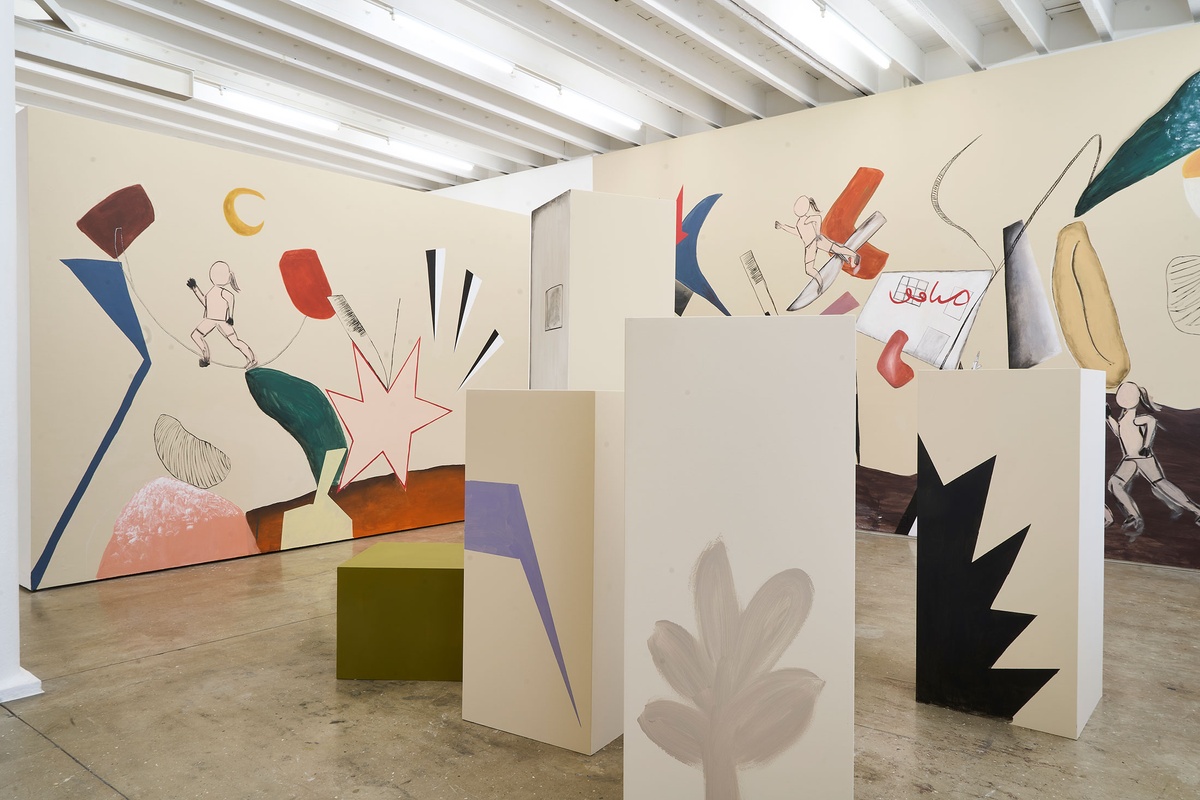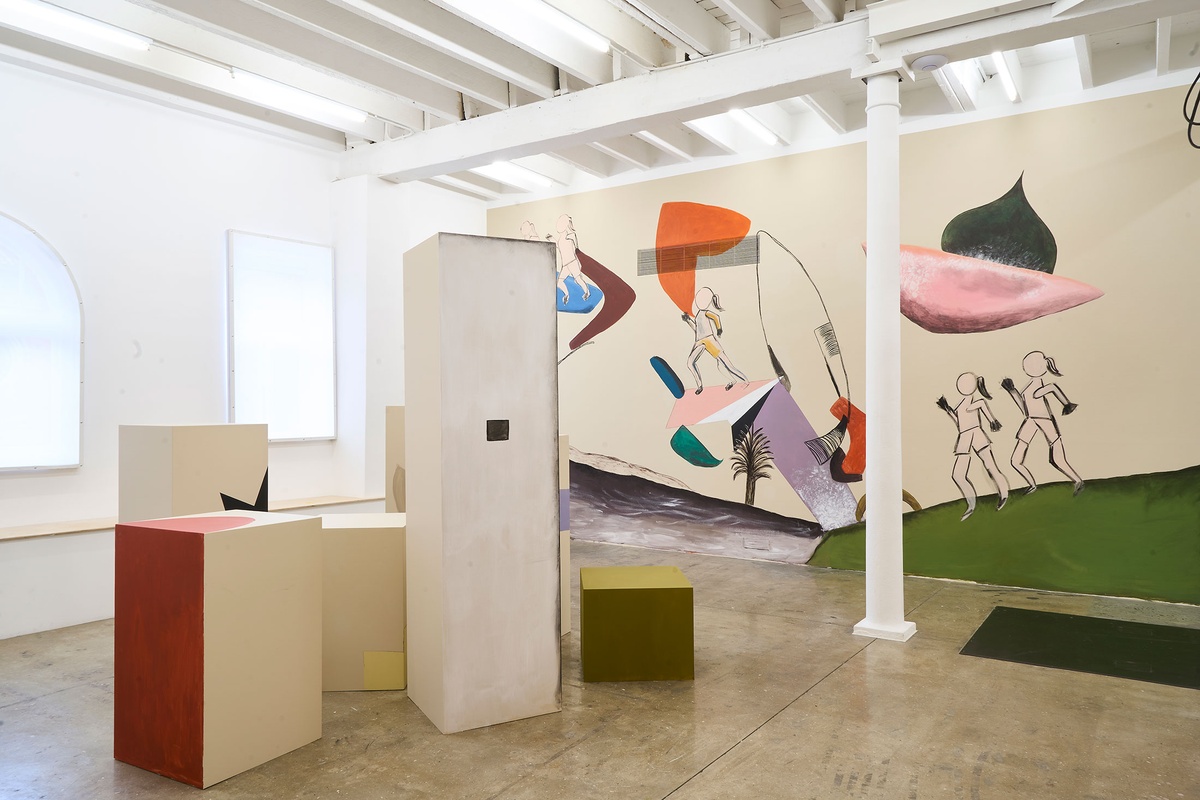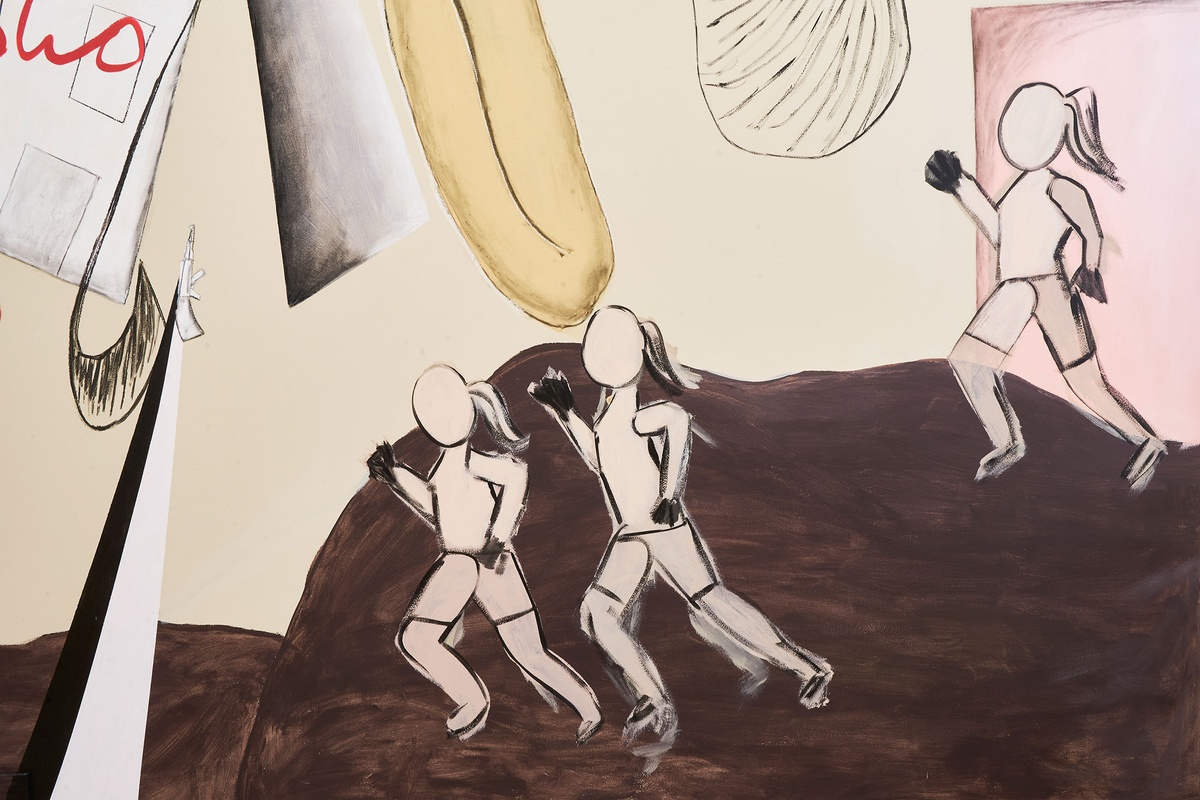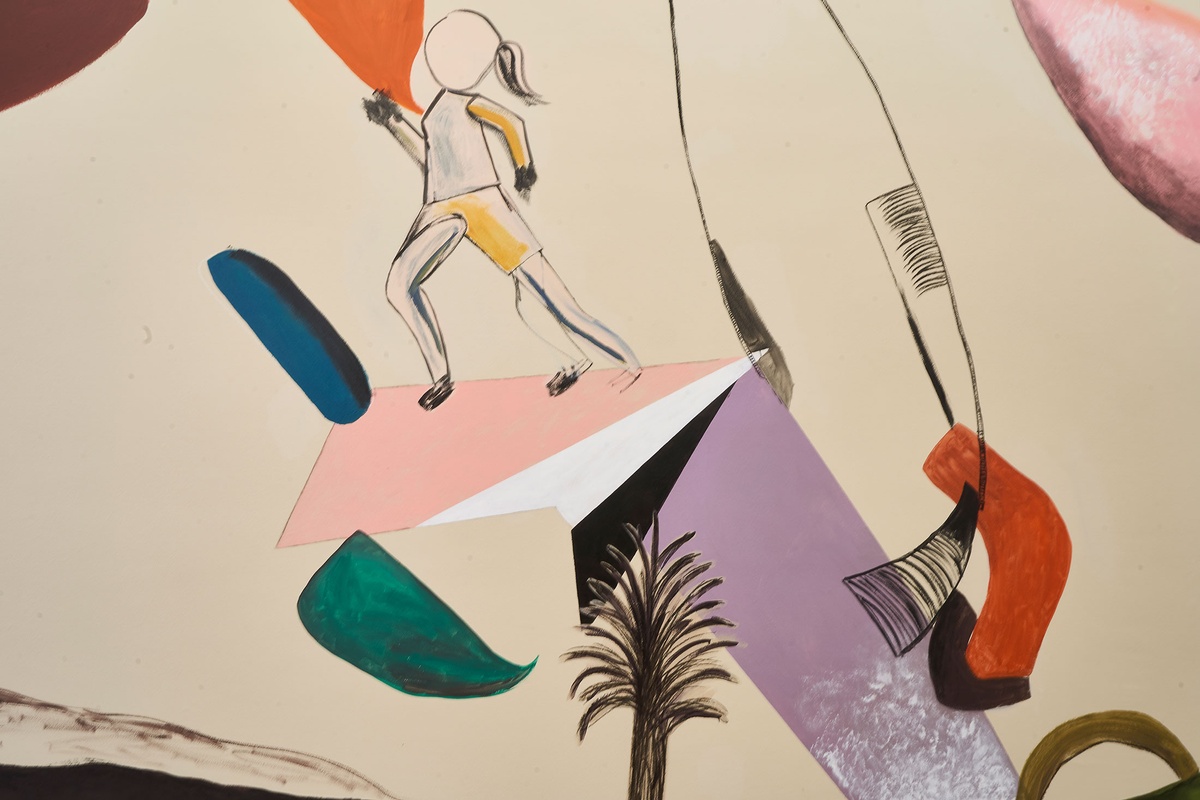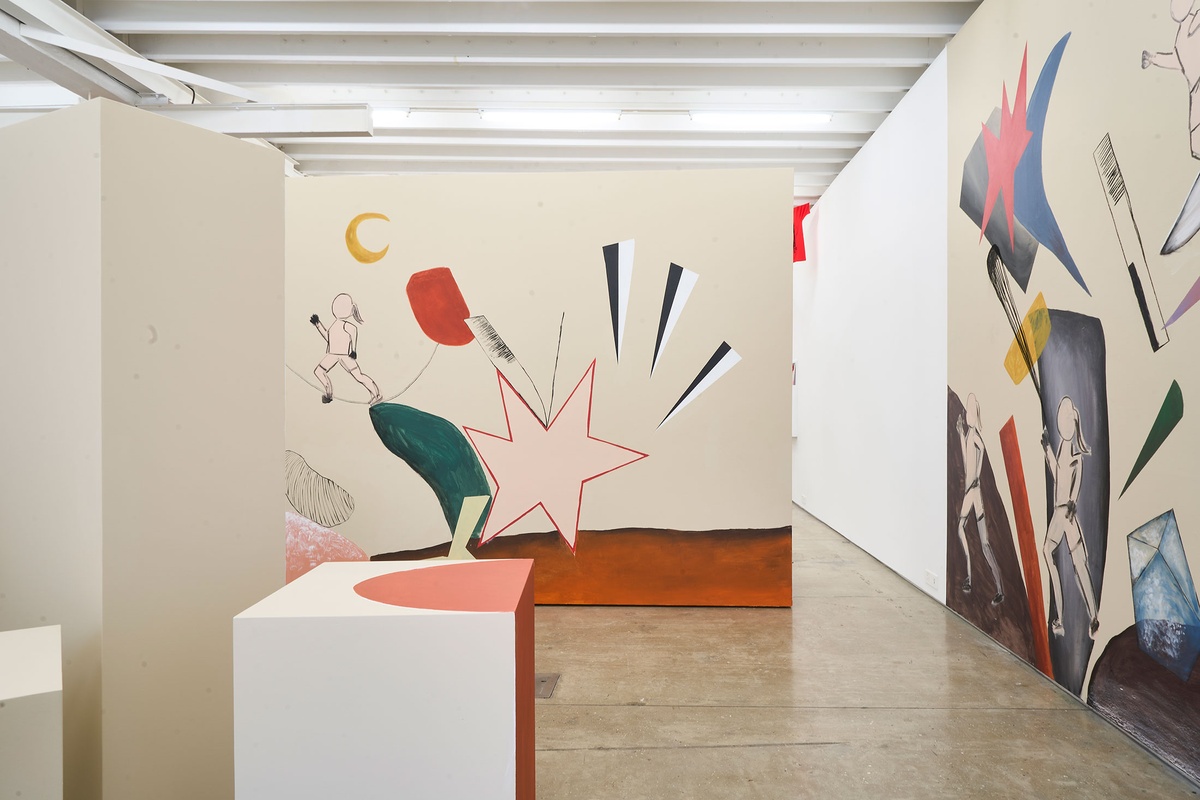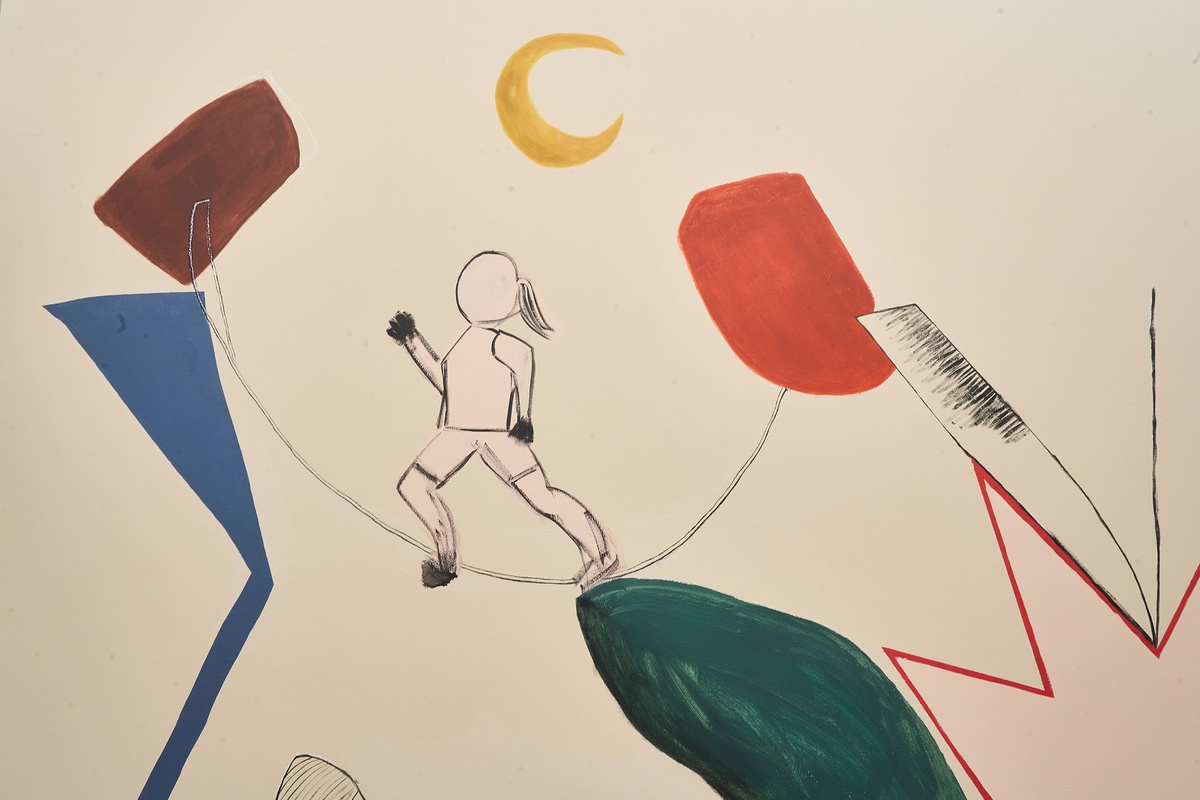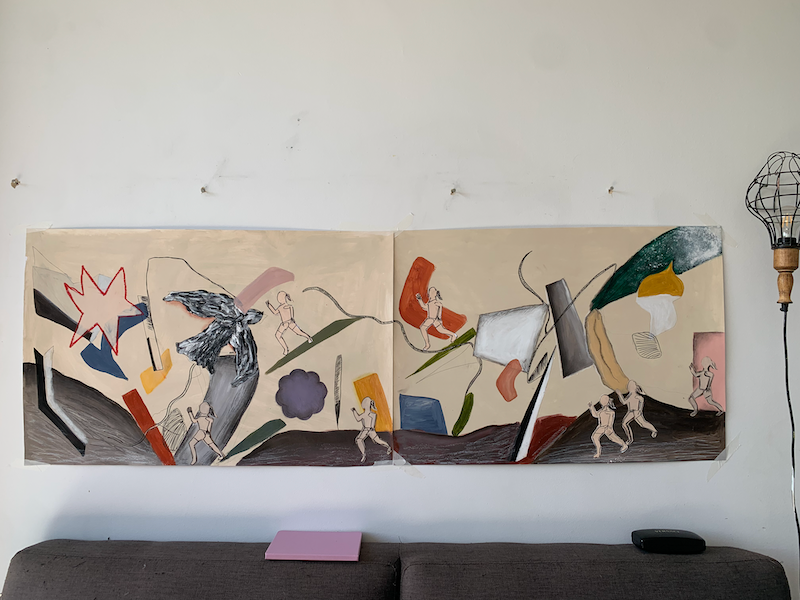Hanna Noor Mahomed
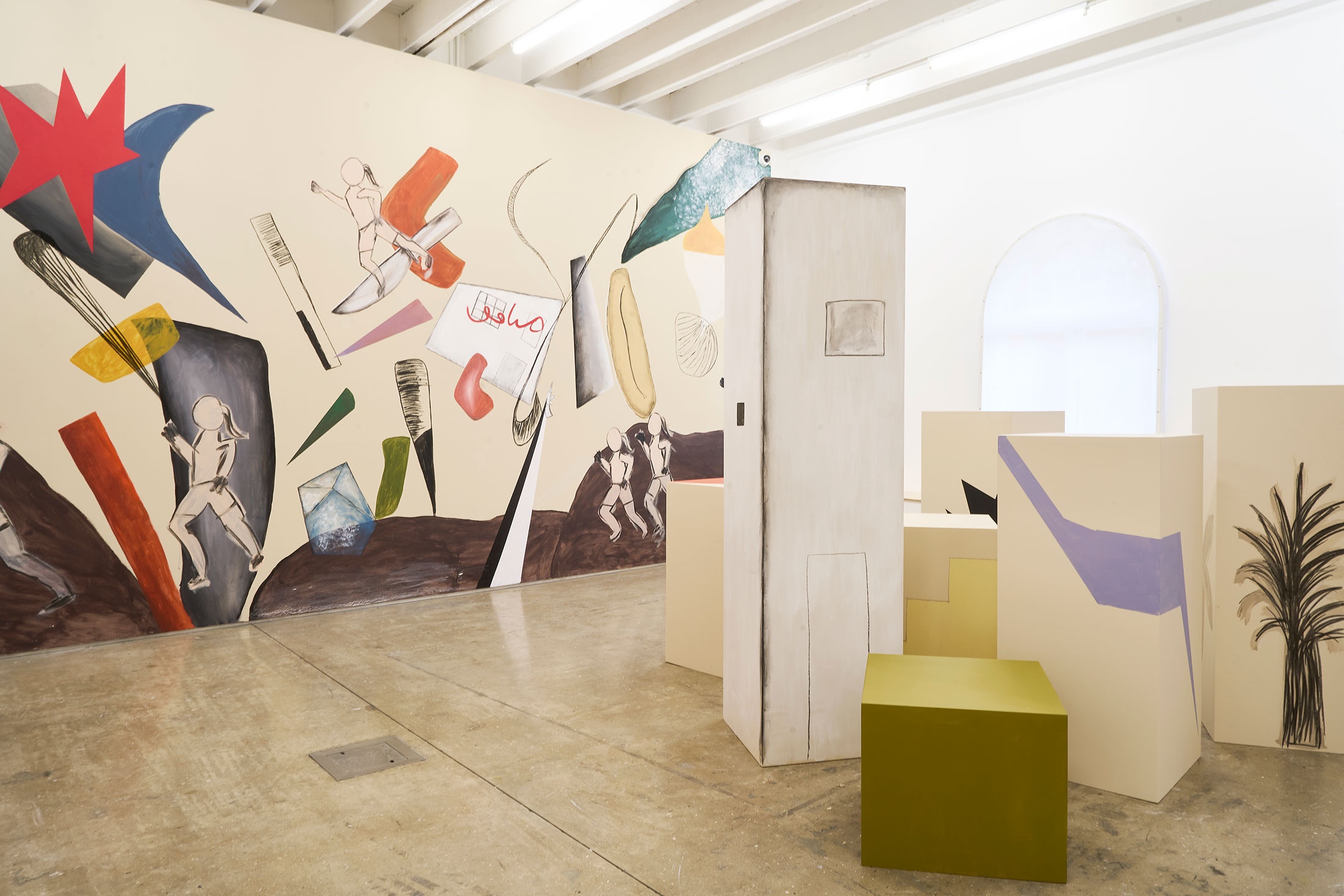
The Prodigal Daughter has a backstory that begins in Goods, a project space at A4. Goods is in the foundation’s ‘goods’ entrance, demarcated by colourful walls. When not occupied by projects, the goods entrance is most often a thoroughfare for objects as diverse as A4’s sidewalk umbrella, artworks that come in and out of the archive, as well as any building materials for wet-work, should repairs need to take place at the foundation. In preparation for the exhibition Common at A4, curator Khanya Mashabela first prototyped a few ideas in Goods. In September 2022, she invited Noor Mahomed to take up residence in the project space. Noor Mahomed’s intervention, titled Disruption, saw the artist paint over and intervene upon archival posters of independent, practitioner-led events and exhibitions. These posters were submitted digitally after an open call to practitioners, in an attempt by Mashabela to create a social archive of Cape Town’s art ecology. They were then printed at the foundation and wheat-pasted onto the then-blue walls. The conversation the curator and artist began (with one another as with the greater arts ecology in the city) during that process, is continued in Common through The Prodigal Daughter, where, this time, Noor Mahomed paints directly onto the walls of A4’s Gallery. The work can be read as a bildungsroman, as well as an allegory for navigating the art world in Cape Town. Told in four movements, three painted murals proceed like a fresco cycle; the last drawn on plinths of varying heights arranged in the centre of the space. Central to this narrative is a femme figure, who is birthed in the first phrase, made multiple in the second, enters into battle in the third, and founds a new city in the ruins of the old in the last. Newness and its potential for novel freedoms guide the episodic tale – a story of space-making – as Noor Mahomed reimagines an art world, created for and by women of colour. The narrative turns on the theme of destruction towards creation. Quoting Salman Rushdie’s The Satanic Verses, Noor Mahomed says, “to be born again, first you have to die.”
b.1999, Durban
Storytelling is central to Hanna Noor Mahomed’s practice. Her narratives, however, do not lend themselves to legibility – the artist resisting pictorial clarity in favour of productive ambiguity. That her paintings and drawings are rooted in abstraction is, she suggests, an invitation to more expansive complexity. Noor Mahomed works against the aesthetic assumptions and demands, and the expected foregrounding of identity politics, that so many minority artists are freighted with. How might one centre one’s religious and cultural experience without reaffirming conceptions of otherness and difference? In answer, she composes stories gleaned from personal, collective, speculative and historical accounts, gesturing to those narratives that go unheard and untold. Quoting a range of religious motifs, political symbols, traditionally Western tropes, and essentialist images, Noor Mahomed considers how these accumulated signifiers are disrupted by new and unfamiliar contexts. The resulting hybrid compositions, with their layers, quotes and fractal forms, offer alternative imaginings of the past, present and future.
